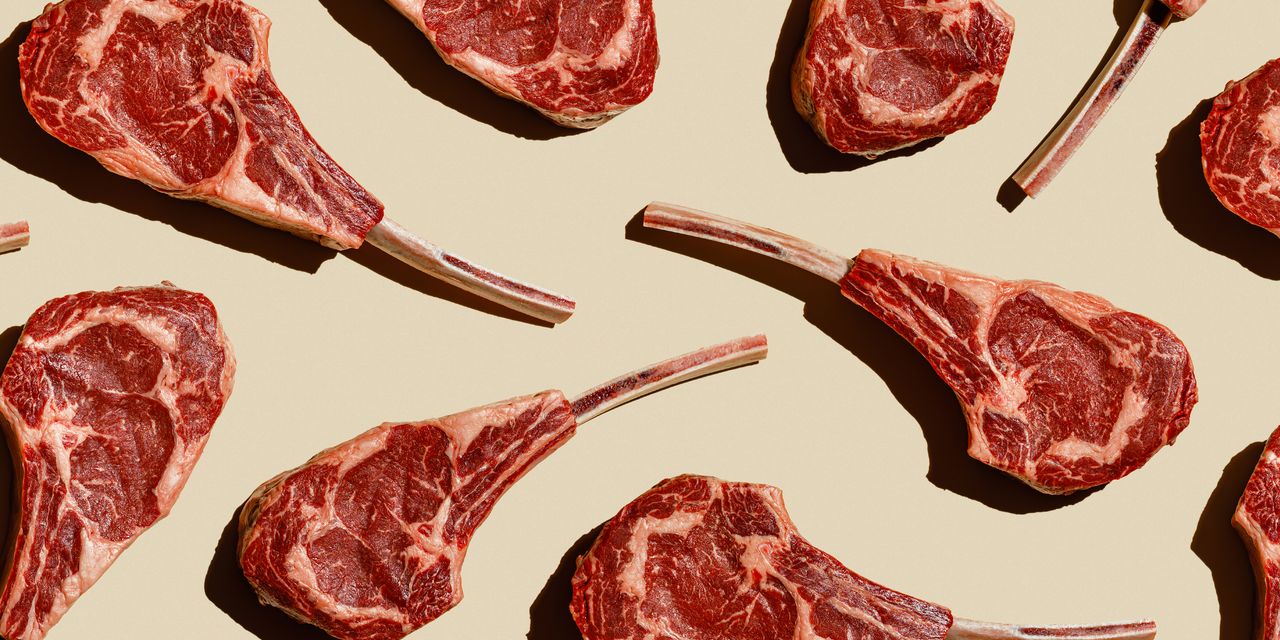Blog
6 Kitchen Items You’re Probably Recycling Wrong

- Many common kitchen items like clamshells, foil and greasy pizza boxes often can’t go in curbside recycling.
- Food residue on containers and mixed materials, like coffee cans, make recycling harder and often contaminate loads.
- Scrap metal facilities can recycle cookware and appliances, while local stores may accept bags and plastic wrap.
Whether you’re trying to eliminate food waste, cut down on single-use plastics or learn to compost, your kitchen is one of the most impactful starting points for being more sustainable at home. This is also the area of the home with the biggest potential for recycling, which most Americans support but struggle to do correctly. (Only 32% of Americans actually recycle!)
“Everything [about recycling] is confusing to the public,” says Mitch Hedlund, founder and executive director of Recycle Across America, a nonprofit working to create standardized labels for recycling, compost and trash across the country. “Most packaging often displays a chasing arrow, even though it isn’t recyclable, and the instructions about how to recycle properly are confusing.” She adds that recycling rules vary in each local community, labeling on products is inconsistent and guidelines about how to recycle are often unclear—making it more difficult to ensure products find a second life outside your kitchen. In an effort to clear up some of that confusion, we turned to the experts to identify some of the most common offenders that find their way into the recycling bin—and what you should do with them instead.
Common Kitchen Items That Cause Confusion
Many of the items below are able to be recycled but aren’t included in curbside recycling programs. Some can create issues for recycling sorting equipment, especially if your community has a single-stream recycling program, which allows for paper, cardboard, plastic, glass and metal to be recycled together. Remember, all items need to be at least scraped clean, but ideally should be rinsed too. “Leftover food contaminates the recycling stream,” explains Brandi Harleaux, CEO of South Post Oak Recycling Center in Houston. “A rinse keeps metals clean and allows true circularity—aluminum and steel can be melted into new sheets, then remade into new cans.”
- Berry containers and clamshells. Plastic berry containers or clamshells often seem recyclable—to the average person, there isn’t much difference between them and plastic bottles and jugs. But many community recycling programs don’t accept these, as the lightweight thermoform plastic they’re made from can compress flat during the recycling process, which contaminates sorting.
- Pizza boxes. While cardboard is recyclable, often there is too much grease or leftover cheese on the boxes to recycle these effectively. “If it is very clean cardboard, then yes it can be recycled,” Hedlund explains. “If the box has grease and cheese stuck on the cardboard, put the pizza box in the trash.”
- Aluminum foil. While aluminum is recyclable, many curbside recycling programs don’t accept foil or aluminum takeaway containers, Harleux says. These containers and foil are most likely to be covered in food residue, making them unusable. “Just one dirty or tricky item can contaminate a whole load,” she explains. If your facility does accept aluminum foil in curbside recycling, make sure it’s rinsed and free of residue, then ball it up. (Loose pieces can jam recycling equipment!) A scrap metal facility, like Harleaux’s, will likely take aluminum in other forms, like cans and sheets—and even offer cash for them.
- Yogurt containers. Peek at the bottom of your yogurt cup and you’ll likely see that little recycling triangle imprinted, but that doesn’t mean you can just toss it in the bin. Often, these containers have plastic labels or wrappings that need to be removed, and dirty peel-back lids are often too contaminated to go into the recycling bin without a rinse.
- Plastic wrap and bags. While most plastic wrap and single-use plastic bags can be recycled, many curbside collections don’t include them in their pickups, as they can tangle recycling equipment. Rather than putting them in your recycling bin, you’ll need to seek out a local retailer or grocery store that accepts these items to be recycled. (That said, there has been controversy about whether the bags are actually their way to recycling facilities from store drop-off points.) In the case of resealable sandwich and freezer bags, you may need to cut off the zipper before recycling them.
- Coffee cans. Many coffee cans contain mixed materials, like a metal can, plastic lid, and paper label. These kinds of items can be recycled, but often need to be separated before doing so. “Mixed materials (plastic, rubber, concrete attached to metal) are difficult and costly to process,” Harleaux explains. “Coffee cans are often steel with plastic lids and paper labels, making them harder to recycle properly. Take the paper off and recycle the can with your tin/iron.”
Surprising Items You Can Recycle
Curbside recycling programs are often the most convenient for folks, but they aren’t the only way to recycle. Bringing certain items directly to a scrap metal recycler can ensure that the metals are reused and even put some money in your pocket, Harleaux explains. For example, stainless-steel cookware can be recycled, as can cast-iron pots and pans. Even more surprising, your large appliances, like a fridge or oven, can be recycled at these facilities, rather than put out with “bulk” trash pickup.
If You’re Not Sure About an Item
Recycling rules vary by community, so if you have questions about a particular item, it’s best to check with your local recycling provider or city website. Even if your curbside pickup doesn’t accept an item, you can check guidelines with the Environmental Protection Agency or the Earth911 recycling database for ways to make sure the items find a second life.
The Bottom Line
While many common kitchen items, like plastic clamshells, plastic wrap and aluminum foil are made with recyclable materials, they may not be able to be included in curbside recycling bins—at least not without taking a few extra steps to prepare them before they are picked up. Check with your local recycler about whether they can accept the items and if they have any requirements for them. You’ll also want to check with them about recyclable mixed materials (like yogurt cups or coffee cans with plastic and paper elements) and ensure that jars are given a quick rinse and food debris is removed (scraped clean is usually ideal; a rinse is best though) from all recyclables. Remember, many items can be recycled—they just may not be able to be included in your curbside pickup.












